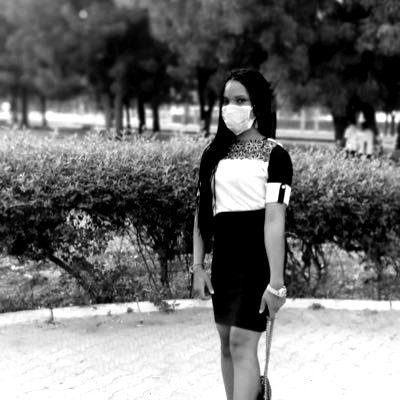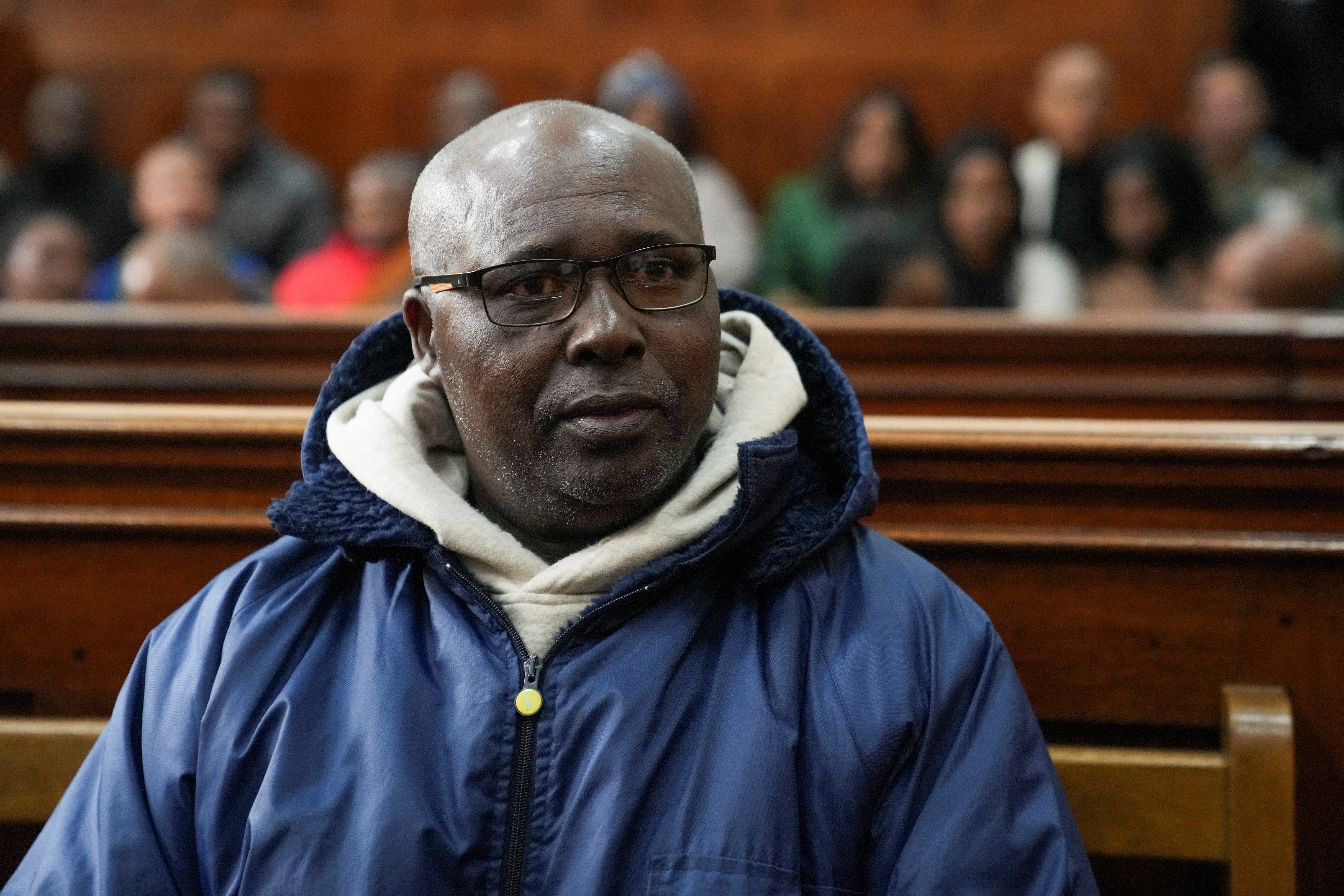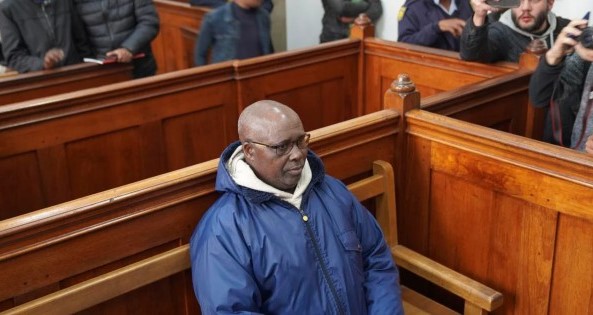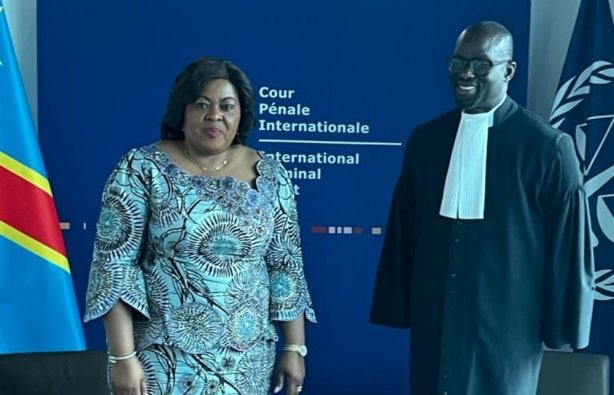International
Genocide: Kayishema’s arrest should set an example to nations harboring mass murderers

Just
an hour’s drive from Cape Town, South Africa, is Paarl, a town renowned for its
beautiful countryside, excellent wines and some incredible architecture. A
large variety of grapes are grown in Paarl, hence the many grape farms found in
the town.
On
Wednesday evening, May 24, a man locally known as Donatien Nibasumba,
supposedly a Burundian refugee, was at his work station as a security guard at
a farm in the wine country outside Cape Town when he suddenly found himself
surrounded by police in body armour carrying rifles.
Two
foreigners, leaders of the UN fugitive tracking team who had arrived with
the police, walked up to him and started reading him his rights. They did not
refer to the man as Nibasumba.
They
called him Fulgence Kayishema, the name of one of the world’s most-wanted
fugitives. He looked devastated, and denied being Kayishema. He was a trusted
and well-liked employee in the mostly Afrikaner farming community in Paarl,
where he had saved a local woman from an attack. Confronted by the members of
the international tracking team pursuing war criminals, the man even denied he
could speak English.
But
his denials, and lies, didn’t dissuade them. The hunters, as they are often
called, the small UN unit that has previously tracked down some of Rwanda’s
worst killers – perpetrators of the 1994 genocide against the Tutsi – had done
their surveillance properly and knew they had their man.
He was
arrested.
Accused of crimes against humanity, Kayishema,
a Rwandan Genocide suspect, was living and working peacefully as Donatien
Nibashumba, pretending to be a Burundian war refugee.
Related: Mass
murderer Kayishema finally arrested; who’s next?
Related: Kayishema’s
arrest is a good move, but not enough
According
to reports, he was a loved and trusted confidant of the Afrikaans family he
lived with in Paarl. Upon his capture he told the police: “I have been waiting
a long time to be arrested”.
Kayishema
was indicted in 2001 for genocide, complicity in genocide, conspiracy to commit
genocide and crimes against humanity for killings and other crimes committed in
Kivumu Commune, Kibuye Prefecture, during the 1994 genocide against the Tutsi
in Rwanda.
As
the former head of the genocidal government's judicial police in the former
Kibuye prefecture, Kayishema is accused of playing a pivotal role in planning
and executing the killings of approximately 2,000 Tutsi including men, women,
elderly people, and young children, at Nyange Catholic Church during the
Genocide.
Kayishema,
who had been at large close to three decades, is an example of how individuals
responsible for the 1994 Genocide against the Tutsi in Rwanda, are leading double lives, living with people
unbeknownst of their past, and the crimes they committed in Rwanda.
At
the end of the genocide, in July 1994, Kayishema, accompanied by his wife,
their children, his brother-in-law, and thousands other mass murderers, fled
Rwanda to Zaire, now the Democratic Republic of Congo, where they were welcomed
with open arms. After a few months he and his family went to Tanzania. Later,
he lived in Mozambique, Eswatini, and South Africa where he was eventually arrested.
To
be able to live in more than five African countries, unbothered, Kayishema
relied on a network of supporters, including family members, members of the
former Rwandan army and FDLR, and those aligned with the Hutu Power ideology.
Cold
blooded murderers are all over the world, hiding behind political activism, and
human rights’ activism. A good number are protected by their churches, mostly
the Catholic Church. In the countries they live in, they are effectively able
to build networks that will help each other evade justice.
Rwanda’s
Genocide Fugitives Tracking Unit (GFTU) indicates that there are over 1,100
Genocide fugitives in almost 33 countries. Between 2007 and 2020, Rwanda issued
1,146 indictments and arrest warrants of these individuals in their respective
countries, to no avail.
Related: Genocide
fugitives hiding in plain sight
Kayishema’s
case should show all the nations that have refused to part ways with
génocidaires that they are shielding dangerous mass murderers who killed their
neighbors, friends, and their compatriots.
The
communities in countries where these criminals found safe havens are not safe.
Just
like thousands of Nazis found refuge in South America and other places after
the fall of the Third Reich, many Rwandan génocidaires fled to countries
including South Africa, where they lied about their real identities and past,
so as to blend in, and get away with murder.
Men
like Kayishema who were having a lark killing babies and pregnant women in
Rwanda and organising the public slaughters of innocent people almost got away
with it and went on to have children of their own and live untroubled lives –
hundreds of them in African countries like South Africa, in small towns like
Pearl where their neighbors suspected nothing.







